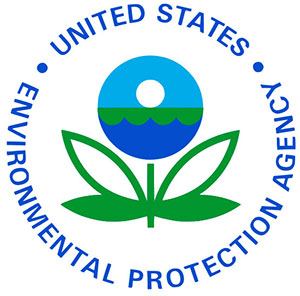July 2015, Vol. 242, No. 7
In The News
Government: Proposed Obama Methane Emissions Plan Lacks Details

The Obama administration announced a plan to cut methane emissions from pipeline operations but gave no specifics beyond the federal agencies which would handle rule-makings. The technical details of those rule-makings and the extent of the cut of methane emissions they seek to produce won’t be known for some time.
While the White House said it wants natural gas industry input into the rule-makings, transmission companies are likely to fight any aggressive requirements for preventing methane leaks form compressors, valves, pneumatic controllers and other equipment, arguing they are already doing that on their own, voluntarily, and obtaining significant methane reductions. Moreover, Republicans in Congress, who now control the House and Senate, would seek to block restrictions perceived by the industry as unduly tough.
The only specific goal the administration set was to reduce methane emissions from the oil and gas sector by 40-45% from 2012 levels by 2025. Methane emissions accounted for nearly 10% of U.S. greenhouse gas emissions in 2012, of which nearly 30% came from the production transmission and distribution of oil and natural gas. Emissions from the oil and gas sector are down 16% since 1990 and current data show significant reductions from certain parts of the sector, notably well completions. Nevertheless, emissions from the oil and gas sector are projected to rise more than 25% by 2025 without additional steps to lower them.
The EPA has been edging toward an air emissions regulation on methane for the past few years. The agency will ostensibly announce an initial proposal containing specifics this summer and finalize it in 2016. That would be the kind of quick action the agency is not known for. Rulemakings typically drag on for years.
Martin Edwards, vice president for the Interstate Natural Gas Association of America (INGAA), says that any EPA action is likely to focus on newly constructed facilities. With regard to existing facilities, pipeline companies are already aggressively seeking out methane leaks from above-ground facilities such as compressors, pneumatic controllers, seals and other equipment.
Under INGAA’s guidance, the industry is developing voluntary guidelines for Directed Inspection and Maintenance. Edwards explains that if the EPA develops regulations on emissions from newly built facilities which generally require companies to do what they are doing to stop leaks on existing facilities, the industry would probably not have a problem with that. “It would depend on what the level of consistency was,” Edwards adds.
Republicans in Congress have already warned the administration not to go too far from that consistency. House Energy and Commerce Committee Chairman Fred Upton (R-MI) and Energy and Power Subcommittee Chairman Ed Whitfield (R-KY) issued a statement saying, “Studies show that while our energy production has significantly increased, methane emissions have continued to decline. This is something that should be celebrated, not bound by new red tape.”
Sen. James Inhofe (R-OK), chairman of the Senate Environment and Public Works Committee, said much the same thing, promising he would work toward “limiting the red tape on our energy infrastructure and work toward common sense solutions that allow America to responsibly develop and consume our natural resources.”
Republicans have shown an inclination to block some EPA regulations, although not with any success. In the last session of Congress, the Republican-dominated House passed a bill which would have stopped the EPA from moving forward with restrictions on carbon emissions from electric utility generators. It was passed on a party-line vote and never taken up by the Democratic-controlled Senate. This year, with the Republicans controlling the Senate, it makes it more likely Congress would pass a bill limiting the administration’s maneuvering room on methane restrictions on interstate natural gas pipelines.
Senate To Consider White House-Opposed Permitting Reform Bill
Whereas Republicans in the House are likely to make trouble for any administration methane regulations, the White House has promised a veto of a GOP-led pipeline permitting reform bill. The House passed the bill on Jan. 21 by a vote of 253-160. The Natural Gas Pipeline Permitting Reform Act (H.R. 161) gives the Federal Energy Regulatory Commission (FERC) 12 months in which to approve a pipeline construction application.
Federal regulatory agencies with environmental responsibilities such as the EPA, Corps of Engineers and the Fish and Wildlife Service would have three months after FERC approval to approve or disapprove a permit for pipeline construction. If the regulatory agency did not act within three months after FERC approval, the project would go forward.
The administration has promised to veto the bill if it passes the Senate. In the Statement of Administration Policy, the White House said: “The administration recognizes the need for additional energy infrastructure and supports the timely consideration of project applications. The administration, however, strongly opposes the bill because it would allow the automatic approval of natural gas pipeline projects if the FERC or other federal agencies do not issue the required permit, license, or approval within rigid, unworkable timeframes.”
The Senate will almost certainly approve the House bill. The question is whether the Senate will add amendments which will attract Democratic votes. The Republicans will need six Democrats to get the 60 votes needed to stop a filibuster, and an additional seven votes to override an Obama veto, if one is forthcoming. The House vote was 253-169, about 20 votes short of what would be necessary to override a veto.
House Energy and Power Subcommittee Chairman Ed Whitfield: “Methane emissions have continued to decline. This is something that should be celebrated, not bound by new red tape.”
Sen. James Inhofe, chairman of the Senate Environment and Public Works Committee: “…limiting the red tape on our energy infrastructure and work toward common sense solutions that allow America to responsibly develop and consume our natural resources.”





Comments